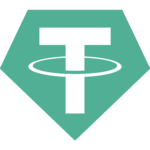The rise of blockchain technology presents a fascinating prospect for disrupting the traditional dominance of tech giants like Google, Apple, Amazon, and Facebook. Known for its decentralized nature, blockchain offers a new paradigm in how information is stored, shared, and verified, promising a shift towards more secure, transparent, and equitable digital ecosystems. This technology is not just about cryptocurrencies; its potential impact spans across various sectors, including finance, media, e-commerce, and beyond.
Decentralization vs. Centralization
At the core of blockchain’s disruptive potential is its decentralized structure. Unlike the centralized models of Google, Apple, Amazon, and Facebook, where data is controlled by a single entity, blockchain distributes data across a network of computers. This not only enhances security and reduces the risk of data breaches but also democratizes access to information and reduces monopolistic control.
Impact on Digital Advertising
Google and Facebook dominate the digital advertising landscape, leveraging vast amounts of user data to drive targeted advertising. Blockchain could disrupt this model by giving users more control over their personal data. Blockchain-based platforms can provide transparent and verifiable ways for users to consent to share their data, potentially reducing the dominance of these tech giants in the advertising space.
E-commerce and Supply Chain Innovations
Amazon’s e-commerce supremacy could be challenged by blockchain through the creation of decentralized marketplaces. These platforms can offer more direct interactions between buyers and sellers, lower transaction fees, and improved supply chain transparency. Blockchain’s ability to verify the authenticity of products and track their journey from production to delivery could revolutionize consumer trust and sustainability practices in e-commerce.
Content Distribution and Monetization
For media and content distribution, blockchain offers a way to challenge the control exerted by companies like Apple and Amazon. By facilitating peer-to-peer transactions, blockchain can enable creators to distribute content directly to their audience, offering greater control over copyright, more transparent royalty payments, and reduced dependency on large platforms for distribution.
Data Privacy and User Control
Perhaps the most significant impact of blockchain will be on data privacy and user control, areas where tech giants have faced intense scrutiny. Blockchain can provide a more secure and transparent framework for managing digital identities, giving users greater control over their data. This shift could fundamentally alter the business models of Facebook, Google, and others that rely heavily on data collection and analysis.
Challenges and Considerations
Despite its potential, blockchain faces significant challenges, including scalability, regulatory hurdles, and the inertia of established user habits. The transition to blockchain-based systems requires overcoming these obstacles and convincing users of the benefits of switching from familiar platforms.
The Road Ahead
As blockchain technology matures, its potential to disrupt the tech giants hinges on the development of user-friendly applications that address real-world problems. The transition towards decentralized platforms will not happen overnight but represents a gradual shift in power dynamics, from centralized authorities to individual users and communities.
In conclusion, blockchain technology harbors the potential to disrupt the dominance of Google, Apple, Amazon, and Facebook by championing a more decentralized, secure, and equitable digital future. While challenges remain, the ongoing evolution of blockchain applications continues to lay the groundwork for significant changes in how we interact with technology, manage our data, and engage with the digital world.











